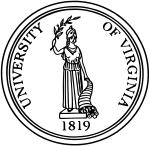McIntire School of Commerce

The McIntire School of Commerce is the University of Virginia's undergraduate business school and graduate business school for Commerce, Global Commerce, Accounting, Management of Information Technology, and Business Analytics. It was founded in 1921 through a gift by Paul Goodloe McIntire. The two-year McIntire program offers undergraduate students B.S. degrees in Commerce with concentrations in Accounting, Finance, Information Technology, Management, and Marketing. Undergraduate students at UVA apply to gain admission during their second year; upon acceptance, they enter the Commerce school at the start of their third year. Some students apply during their third year and will enter upon their fourth year (thus spending a total of five years as an undergraduate as McIntire offers a two-year program). McIntire offers five graduate programs: M.S. in Commerce, M.S. in Global Commerce, M.S. in Accounting, M.S. in Management of Information Technology, and M.S. in Business Analytics, the latter delivered in partnership with the Darden School of Business. McIntire also offers certificate programs in business for non-business students, graduates, and working professionals in academic-year residential, summer residential, and online formats.
Excerpt from the Wikipedia article McIntire School of Commerce (License: CC BY-SA 3.0, Authors, Images).McIntire School of Commerce
Ruppel Drive,
Geographical coordinates (GPS) Address Nearby Places Show on map
Geographical coordinates (GPS)
| Latitude | Longitude |
|---|---|
| N 38.033083333333 ° | E -78.504111111111 ° |
Address
Ruppel Drive
22908
Virginia, United States
Open on Google Maps








